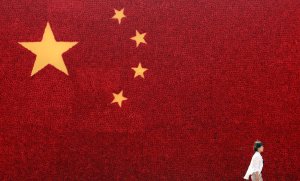Nov. 8 (UPI) — China Friday announced a $1.4 trillion economic stimulus that includes a three-year local government refinance plan to help deal with what was described as hidden debt. But it fell short of what many investors believe is needed.
Chinese Finance Minister Lan Fo’an, speaking at a Friday press conference, said the refinance loans will be limited to $838 billion. A separate $558 billion five-year local bonds program will also be provided to local governments.
It’s essentially a debt-swap program to financially support local governments since local Chinese government debt is currently backed by those governments rather than central government authorities.
Lan said during the press conference that government revenues have come up short of expectations, caused by a variety of factors since the beginning of the year.
Following a standing committee meeting of the National People’s Congress Friday, Lan said these efforts to better manage local government debt will help reduce the debt from $1.9 trillion in 2023 to $320 billion by 2028.
“The local government’s hidden debt resolution measures introduced by China today are a concrete manifestation of the central government’s economic policy shift, with a total debt amount beating market expectations, to a certain extent,” Fitch Bohua, executive director for corporates Haizhong Chang, said.
He added that the scale of the debt swap program is significantly larger compared with similar efforts in recent years.
Capital Economics Chief Asia Economist Mark Williams said in a research note Friday the debt refinance will let local governments spend money elsewhere, but the measures aren’t big enough to have a major impact on the scale needed.
“Clearly, that’s not going to make any appreciable difference,” Williams wrote. “Today’s fiscal announcement is another disappointment for those expecting substantial stimulus.”
China has utilized interest rate cuts and other stimulus since September, resulting in a stock rally.
But under threat of higher tariffs from the new American administration coming to power in January, analysts expect Chinese policymakers to increase the scale of fiscal support to their economy.

COMMENTS
Please let us know if you're having issues with commenting.